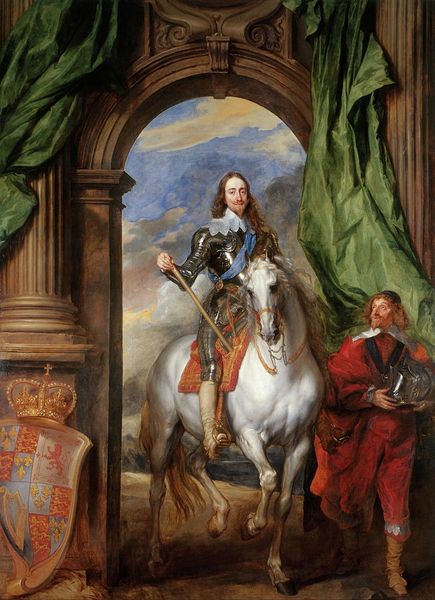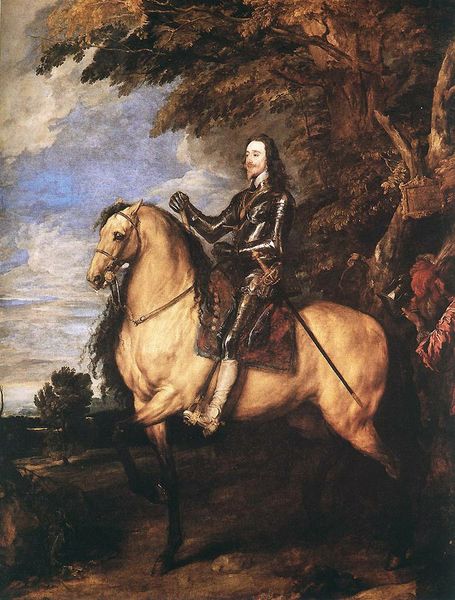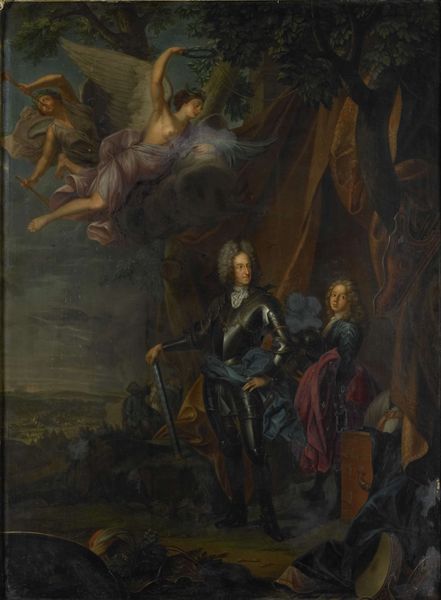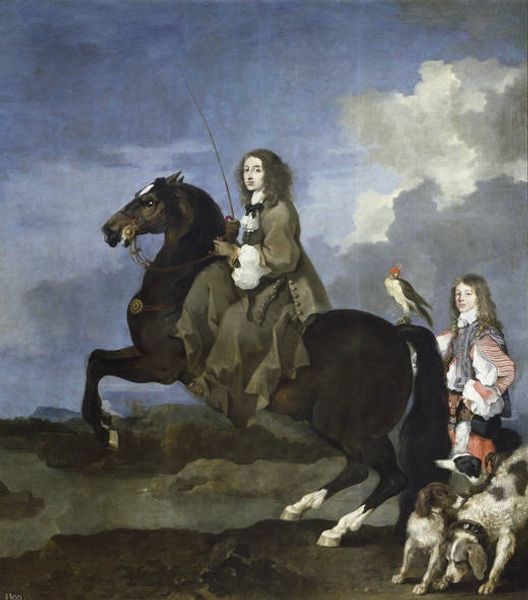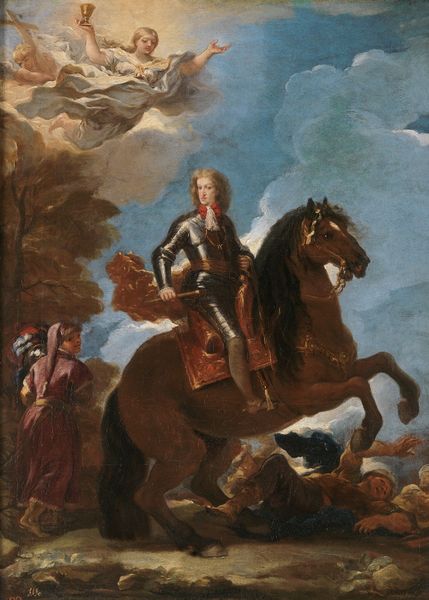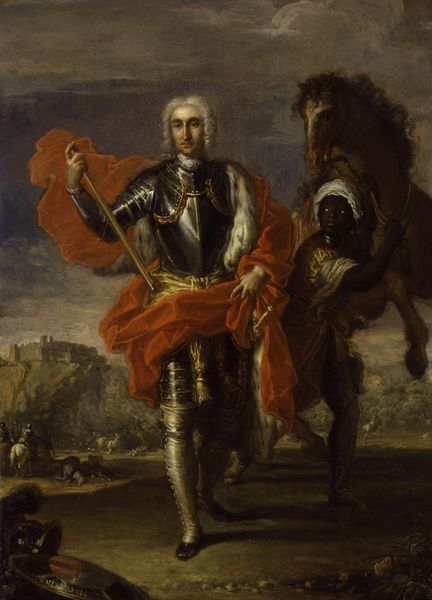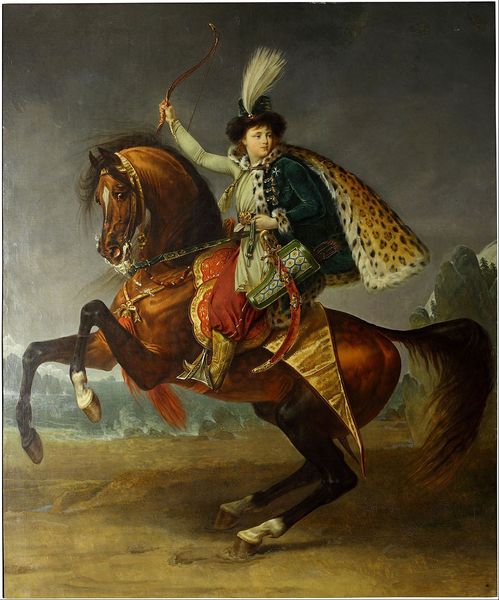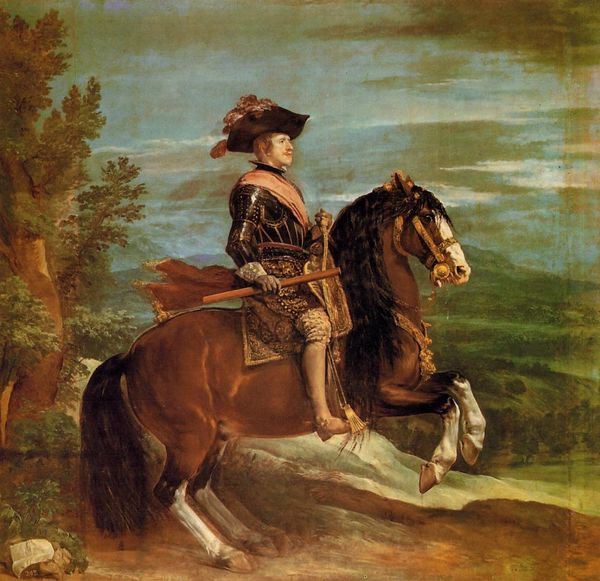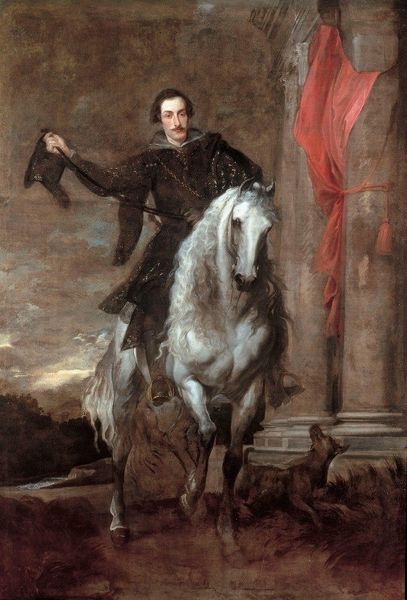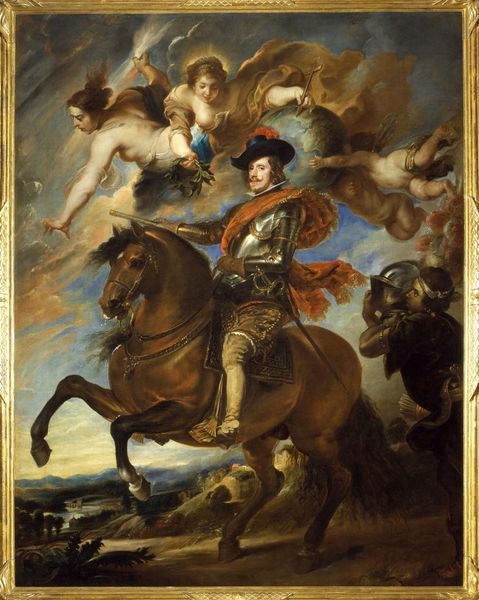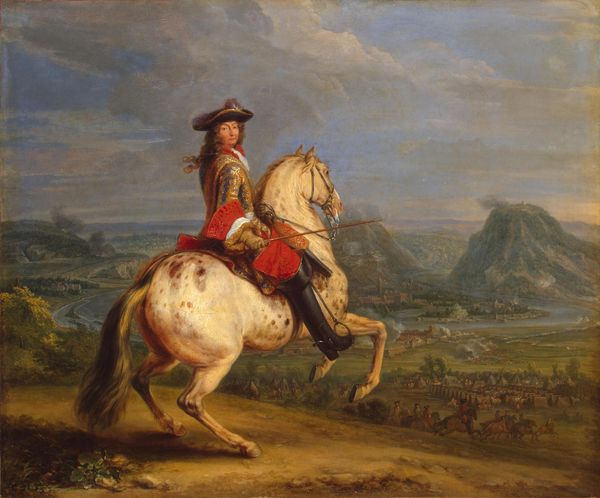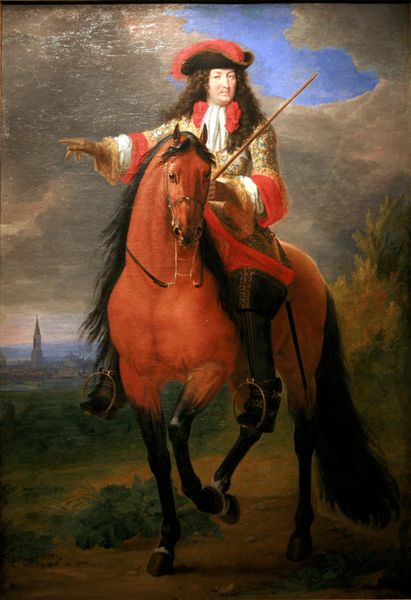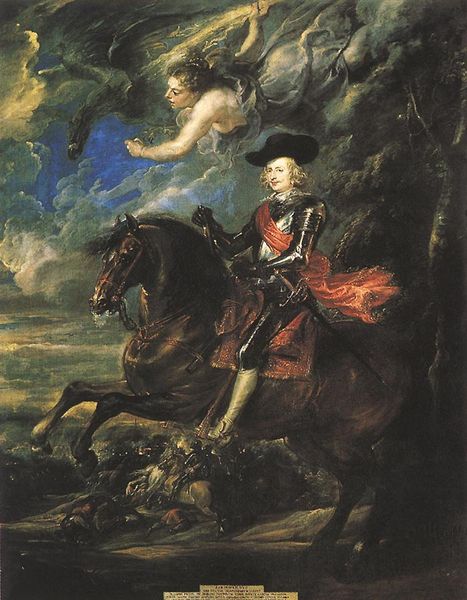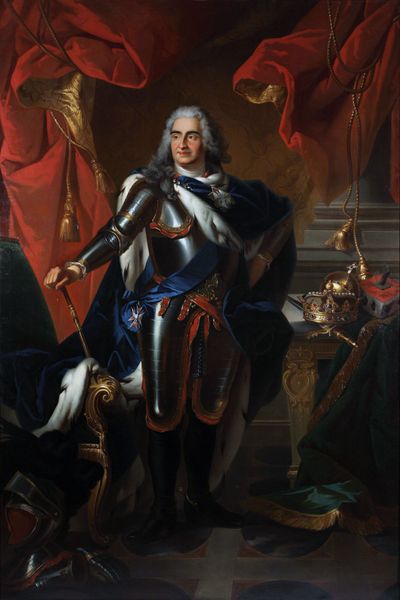
painting, oil-paint
#
portrait
#
baroque
#
painting
#
oil-paint
#
animal portrait
#
genre-painting
#
history-painting
#
erotic-art
Copyright: Public domain
Anthony van Dyck painted "Charles I on Horseback" showcasing the King's divine right to rule, a concept embroiled in the socio-political tensions of 17th century England. Van Dyck, a Flemish artist, became the leading court painter in England, shaping the visual identity of the monarchy. Consider the power dynamics inherent in this portrait. Charles is not merely a man on a horse, but an embodiment of authority, his gaze assertive, his posture regal. This image was crafted during a period of intense religious and political conflict, when Charles's policies were contested by Parliament, challenging the very notion of absolute monarchy. Yet, beneath the veneer of power lies vulnerability; Charles's reign was marked by escalating discord, eventually leading to the English Civil War and his execution. Van Dyck captures a sense of the King's personal ambition, and perhaps, the weight of his crown. How does this image function as both propaganda and a personal statement, reflecting the complex interplay between identity, power, and history?
Comments
No comments
Be the first to comment and join the conversation on the ultimate creative platform.
